During a pardon, the president typically conveys his views on justice, mercy, norms, and social customs.
Written by: Gregory Korte, Bloomberg
Translated by: Luffy, Foresight News
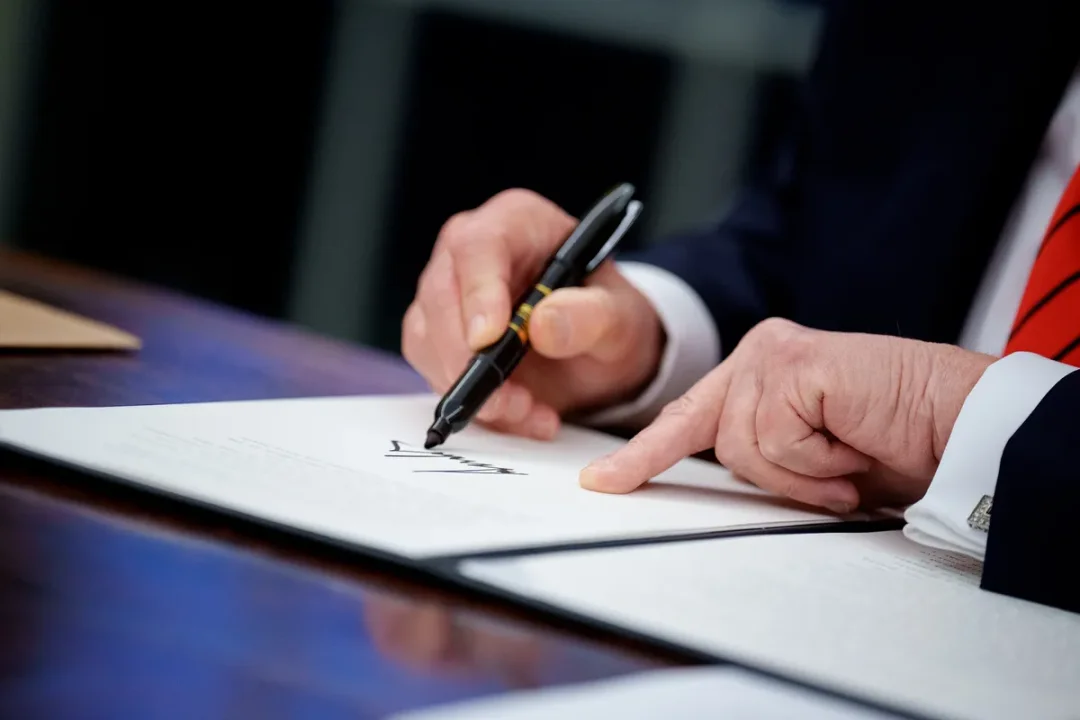
U.S. President Donald Trump signed a series of executive orders, including a pardon, in the Oval Office of the White House in Washington.
The presidential power of pardon is one of the most absolute and easily misunderstood provisions in the Constitution. As Alexander Hamilton stated, this power originates from the royal prerogative of mercy of 7th-century English kings. The Founding Fathers of the United States aimed to provide a convenient avenue for the unfortunate convicted individuals within the judicial system by granting the president strong pardon powers.
Today, this power is as controversial as the person exercising it. On the first day of his second term, President Donald Trump issued a broad pardon for those convicted in the January 6, 2021, Capitol riot.
His predecessor, Joe Biden, pardoned his son Hunter for tax and gun crimes just weeks before leaving office. He also granted what he called "full pardons" to five other family members, expressing concern that they might face unjust prosecution during Trump's presidency; additionally, he pardoned government officials who were labeled as political enemies by Trump and threatened with punishment.
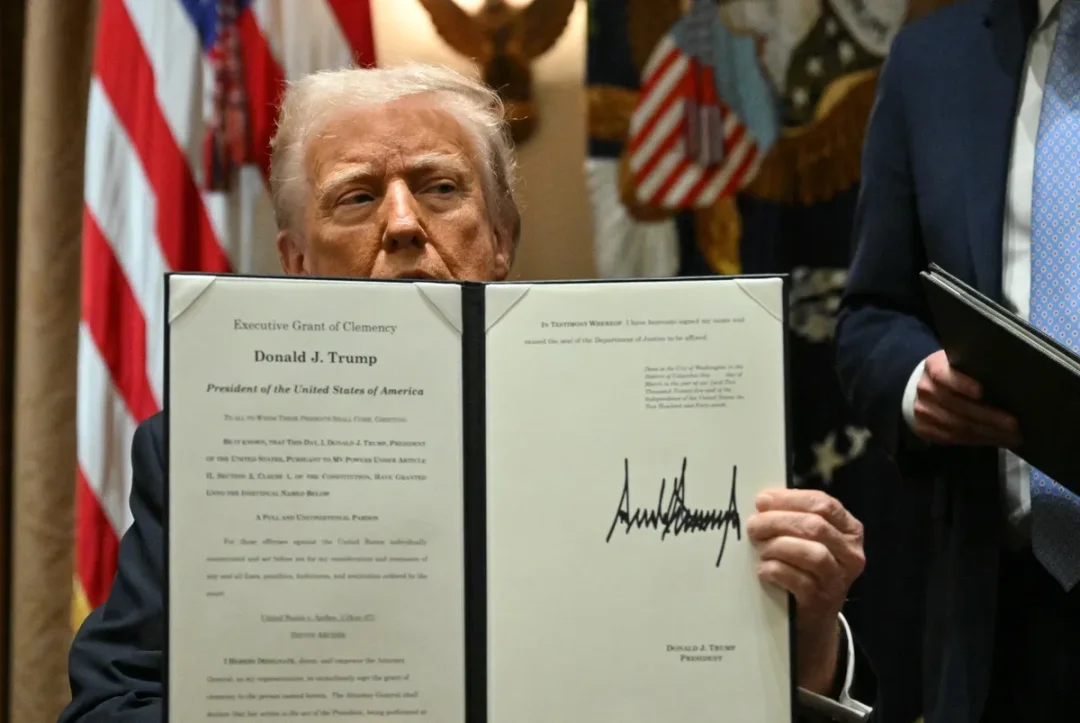
U.S. President Donald Trump spoke after signing a pardon on March 25 at the White House.
What is a pardon?
A pardon is a legal forgiveness of a crime granted by the president, governor, or other executive authorities. In some U.S. states, governors must exercise this power in conjunction with a pardon board, but the power to pardon federal crimes belongs solely to the president.
A pardon does not erase a conviction; the record of conviction remains; nor does it imply a statement of guilt or innocence for the individual. Pardons fall under the president's broader executive clemency powers, which also include the following lesser forms of clemency:
Commutation: Reducing the length of a sentence while retaining all other consequences of the conviction;
Parole: Delaying the execution of a sentence;
Remission of fines: Reducing or waiving monetary fines.
In modern times, the use of parole and remission of fines is relatively rare.
How often does the president exercise the power of pardon?
Except for two presidents who died in office, William Henry Harrison and James Garfield, all presidents have exercised the power of pardon. Since George Washington first pardoned the act of "smuggling rum from Barbados using less than 50 gallons of barrels," presidents have issued nearly 35,000 individual pardons.
In recent decades, the use of this power has decreased, with presidents mostly exercising it around holidays or at the end of their terms.
However, Biden has been an active pardoner. Before leaving office, he released 1,499 individuals under home confinement, including some convicted of public corruption, commuted 37 death sentences, and shortened the sentences of 2,490 drug offenders, whom he claimed had been unjustly re-sentenced.
By the last day of his presidency, Biden had issued 79 pardons and 4,168 commutations, making him the most frequent user of executive clemency powers in U.S. history, with the number of pardons issued in his single term exceeding the total of the previous seven presidents combined.
Why does the president exercise the power of pardon?
During a pardon, the president typically conveys his views on justice, mercy, norms, and social customs.
The list of pardons serves as a history of American society, with each president striving to bridge old conflicts and reconcile the nation with its more punitive past. Wars, rebellions, Prohibition, and the war on drugs often see rounds of leniency years or decades later.
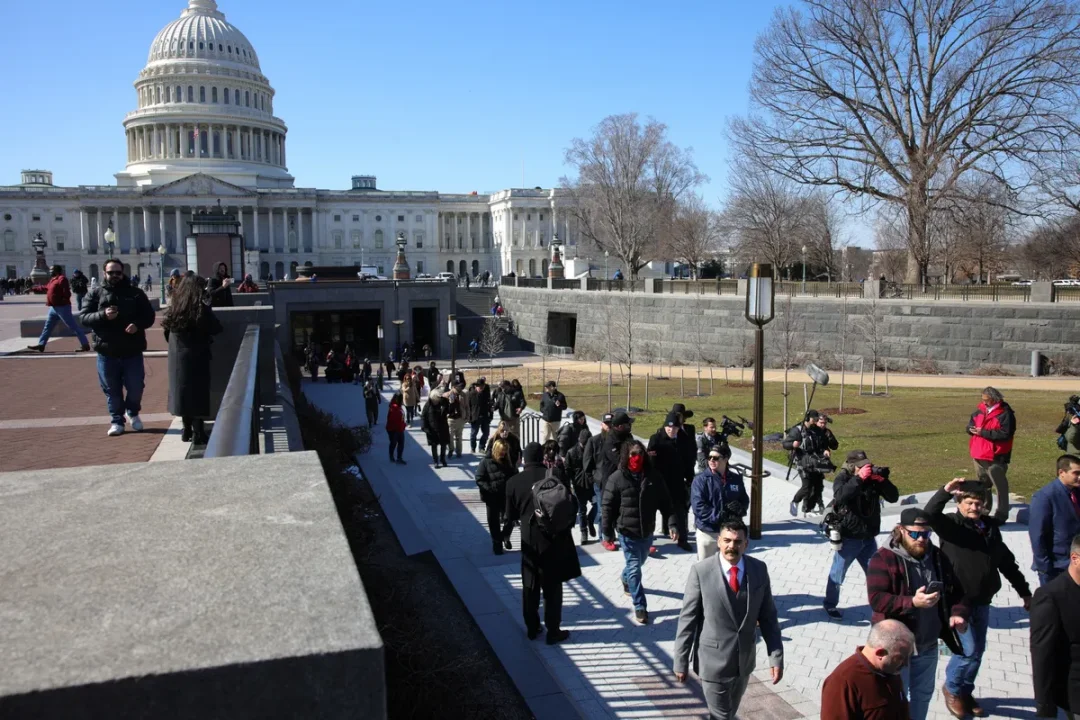
Leaders of the "Proud Boys" and "Oath Keepers" involved in the January 6, 2021, riot held a press conference on Capitol Hill in Washington on February 21.
Trump's pardons for participants in the Capitol riot have clear precedents. In the 1790s, President Washington pardoned ten leaders of the "Whiskey Rebellion," who had been convicted of treason; Presidents Abraham Lincoln and Andrew Johnson pardoned Confederate soldiers, and President Gerald Ford pardoned their general, Robert E. Lee.
Some pardons are seen as having self-serving motives. President Richard Nixon pardoned influential labor leader Jimmy Hoffa, who had been convicted of jury tampering and fraud, and later supported Nixon's re-election campaign; President Bill Clinton pardoned financier Marc Rich, whose wife was a major donor to Clinton's campaign, and Rich had previously been indicted for tax evasion and trading oil with Iran during an embargo; on October 23, Trump pardoned Binance founder Changpeng Zhao, who had served four months in federal prison for failing to establish effective anti-money laundering mechanisms at the cryptocurrency exchange. Prior to this, Zhao and Binance had become major supporters of Trump's family cryptocurrency project, World Liberty Financial.
What are the limitations of the power of pardon?
The Founding Fathers intentionally reduced additional conditions when establishing the power of pardon. Hamilton wrote that this power should avoid constraints and hindrances as much as possible.
The Supreme Court has ruled that since the power of pardon is explicitly granted to the president by the Constitution, any limitations (if they exist) must stem from the Constitution itself.
In other words, as long as it does not violate other provisions of the Constitution, a pardon is valid. Such unconstitutional cases are extremely rare: some commentators believe that accepting a bribe in exchange for a pardon could render the pardon invalid, but this has not been definitively concluded.
The Constitution explicitly states two limitations: first, the president can only grant pardons for federal crimes and has no authority over state crimes; second, except in impeachment cases, the president cannot use the power of pardon to obstruct Congress's power to remove himself or other officials.
Can a presidential pardon be revoked?
Neither Congress nor the courts have the authority to overturn a presidential pardon, but if the pardon document has not yet been delivered and accepted by the recipient, the president can revoke the pardon.
In 2008, President George W. Bush pardoned real estate developer Isaac Toussie, who had been convicted of mail fraud. But a day later, Bush learned that Toussie's father had donated to the Republican Party, so he revoked the decision and instructed that the pardon document not be delivered. Since Toussie did not receive the relevant documents, the pardon did not take effect.
The president can also attempt to revoke pardons that were not delivered by a predecessor. In 1869, President Andrew Johnson granted pardons to three individuals convicted of fraud, but a few days later, President Ulysses S. Grant took office and recalled the U.S. marshals responsible for delivering the documents, and those pardons were ultimately revoked.
Can a president pardon himself?
Most legal scholars believe that a president cannot pardon himself, partly based on the literal meaning of the power of pardon. The Constitution states that the president has the authority to "grant" pardons, meaning "to give" or "to transfer," which implies that pardons must be granted to others. Additionally, before resigning in 1974, the Office of Legal Counsel at the Justice Department noted in a legal memorandum that based on the fundamental principle that "no one should be a judge in their own case," the president cannot self-pardon. Nevertheless, President Ford ultimately pardoned Nixon for all crimes he may have committed during the Watergate scandal.
However, this issue has never been tested in court, and even scholars opposing self-pardons acknowledge that it remains an unresolved topic. There is, however, a workaround: the president could temporarily transfer the power to the vice president, who could grant the pardon in the capacity of acting president.
Can a pardon be granted in advance?
The president cannot grant pardons for crimes that have not yet been committed, which would amount to a lifetime immunity.
However, for crimes that have been committed but not yet prosecuted, the president can grant pardons. In a landmark ruling in 1866, the Supreme Court in the "Garland case" (which involved Confederate soldiers) determined that the power of pardon applies to all legally defined crimes and can be exercised at any time after the crime has been committed—whether before, during, or after the legal proceedings.
What is a "full pardon"?
When granting a pardon, the president does not need to specify the particular crime; such a pardon is referred to as a "full pardon." The most famous example is President Ford's pardon of Nixon, which covered all crimes committed during his presidency.
Biden's pardons of family members and officials labeled as enemies by Trump before leaving office also fall into this category. The pardoned relatives include three siblings and their two spouses; the officials include retired General Mark Milley, infectious disease expert Anthony Fauci, and members and staff of the committee that investigated the January 6 Capitol attack and recommended prosecuting Trump.
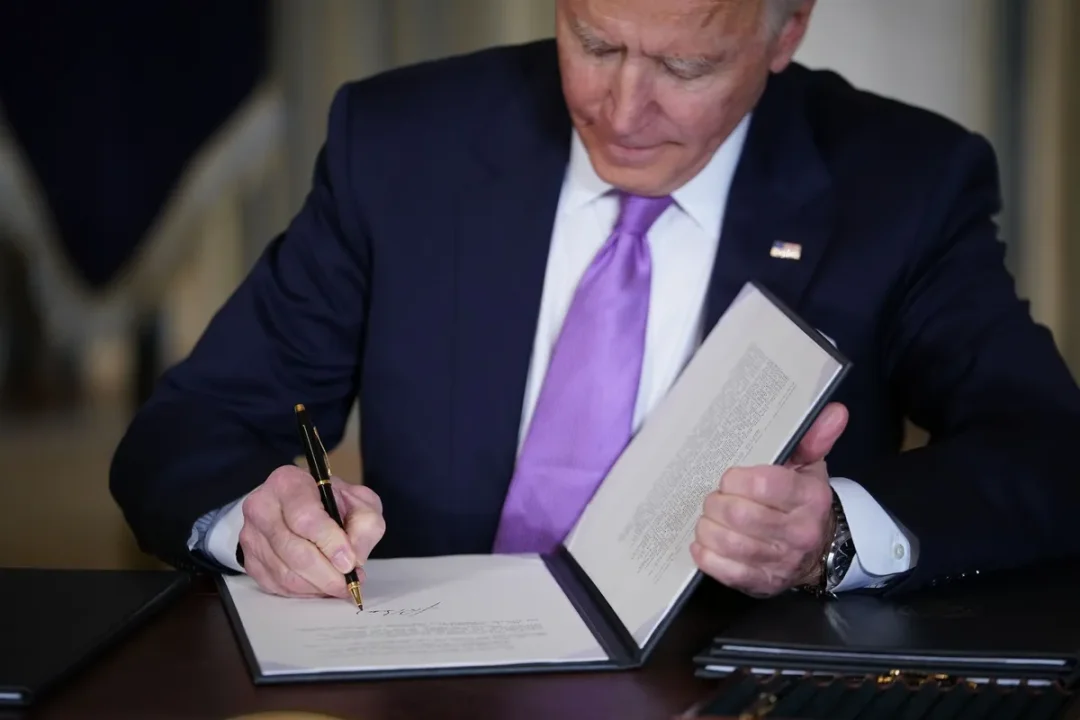
Former U.S. President Joe Biden signing executive orders at the White House.
The committee members include former Republican Congresswoman Liz Cheney from Wyoming (who helped lead the investigation) and current Democratic Senator Adam Schiff from California (who also led Trump's first impeachment trial). Biden also pardoned Capitol Police and Metropolitan Police officers from Washington, D.C., who testified before the committee.
Biden's pardon of his son Hunter includes both the previously convicted gun and tax crimes, as well as all other crimes he may have committed over the past 11 years.
Trump also pardoned several allies during his first term, including former political advisor Stephen Bannon and the ex-husband of Fox News host Jeanine Pirro, Albert Pirro II.
Does accepting a pardon mean admitting guilt?
Not necessarily. Presidents often grant pardons to those they believe are innocent or have been wronged. For example, Trump posthumously pardoned boxer Jack Johnson, who was convicted in 1913 for transporting women across state lines for immoral purposes, a charge often used as a pretext for racist prosecutions; Biden pardoned service members convicted of violating the now-repealed "Don't Ask, Don't Tell" policy; in his last few acts of clemency, he also pardoned Marcus Garvey, a Black nationalist leader who was convicted of mail fraud in 1923, with civil rights activists long believing that the prosecution of Garvey was racially motivated.
The common perception that "a pardon implies guilt" stems from the Supreme Court's 1915 ruling in "Burdick v. United States," which stated that a pardon carries an implied presumption of guilt, and accepting a pardon is equivalent to pleading guilty. President Ford kept this ruling in his wallet as justification for pardoning Nixon.
However, later courts did not view this presumption of guilt as central to the Burdick ruling; the core conclusion of that case is that those granted pardons have the right to refuse to accept them.
Must a pardon be in writing?
In February 2024, a federal appeals court ruled: "The answer is undoubtedly no. The literal meaning of the Constitution does not impose such a restriction."
But from a practical and historical perspective, keeping records is more prudent. In the aforementioned 2024 ruling, the Fourth Circuit Court of Appeals determined that Trump's verbal statements to former Cleveland Browns running back Jim Brown, such as "I'll take care of it" and "I hope this gets done," were insufficient to release a man sentenced to life imprisonment for drug trafficking and murder.
Must the president specify the recipient of a pardon?
No, it is not necessary. Historically, there have been categorical pardons that grant clemency to all individuals convicted of specific crimes. For example, President Jimmy Carter granted amnesty to draft dodgers after the Vietnam War, and Biden implemented categorical pardons for marijuana-related offenses. In such cases, individuals convicted of specific crimes can apply to the Department of Justice's Office of the Pardon Attorney for a certificate to prove their eligibility for a pardon.
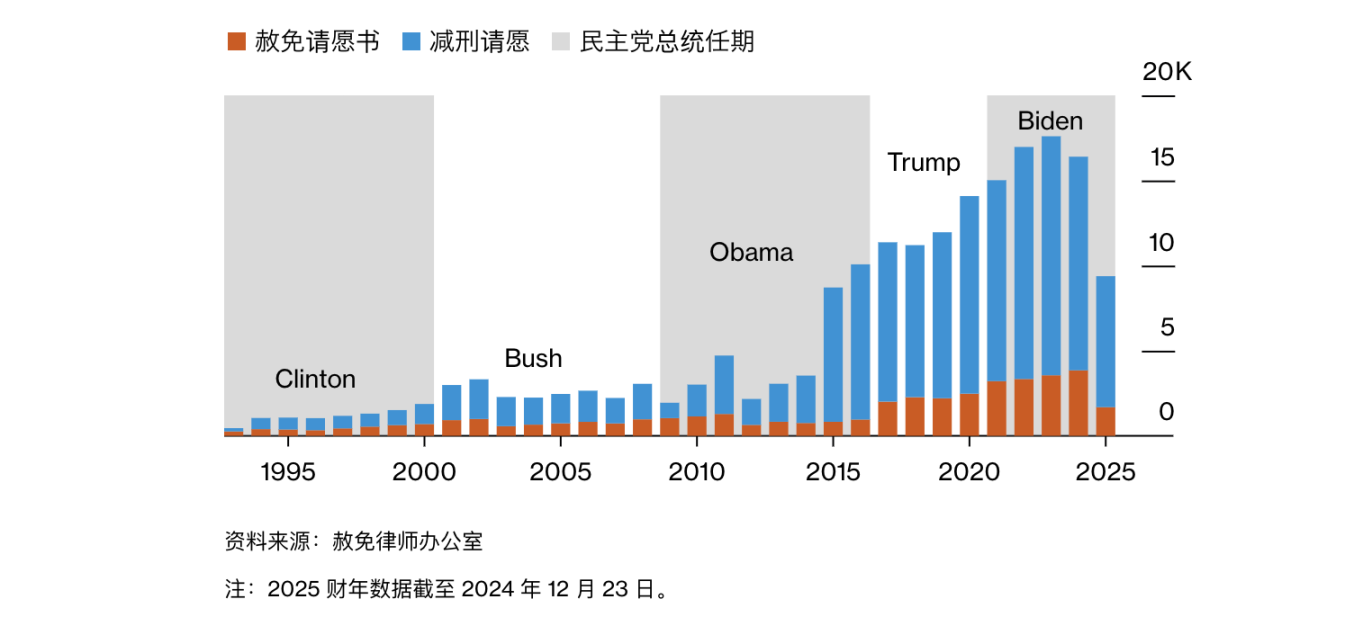
Number of presidential pardon applications pending with the Department of Justice's Office of the Pardon Attorney each fiscal year.
How to obtain a pardon?
There are two procedural paths to obtain a pardon:
The first is the path followed by President Barack Obama. Applicants must submit a request to the Office of the Pardon Attorney. This office typically requires applicants to wait five years before submitting their applications and does not accept requests for posthumous pardons or misdemeanor pardons. After a thorough review (including an FBI background check), the application is submitted in turn to the Attorney General, the White House Counsel's Office, and ultimately decided by the president for approval or denial.
The second is the path favored by Trump, which is much more lenient. During his first term, he often took the advice of celebrities like Kim Kardashian and Sylvester Stallone, skipping the waiting period and background checks, and signing pardons at grand ceremonies.
Most presidents use a combination of these two paths, and more controversial pardons are often completed through the direct submission to the president.
One reason for bypassing the bureaucracy is that during Biden's administration, the backlog of pardon applications reached a historic high, which was only reduced to pre-Trump levels after he concentrated on approving a batch of applications before leaving office.
免责声明:本文章仅代表作者个人观点,不代表本平台的立场和观点。本文章仅供信息分享,不构成对任何人的任何投资建议。用户与作者之间的任何争议,与本平台无关。如网页中刊载的文章或图片涉及侵权,请提供相关的权利证明和身份证明发送邮件到support@aicoin.com,本平台相关工作人员将会进行核查。



